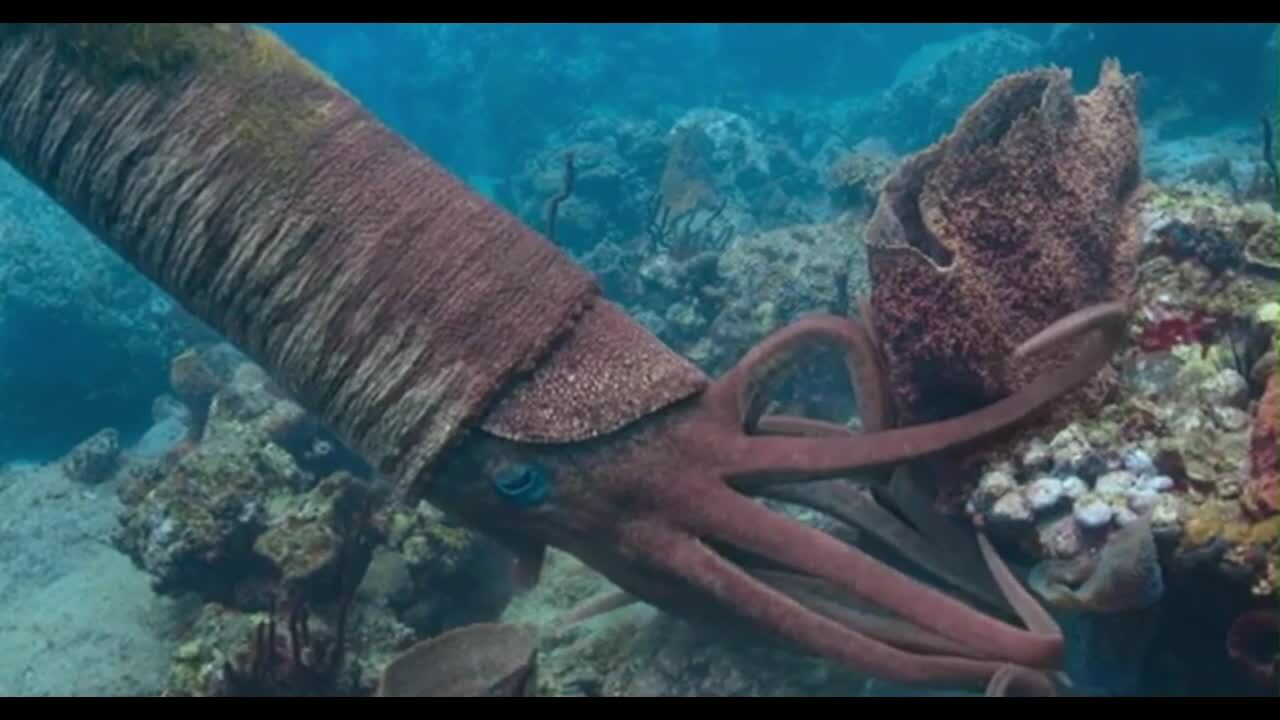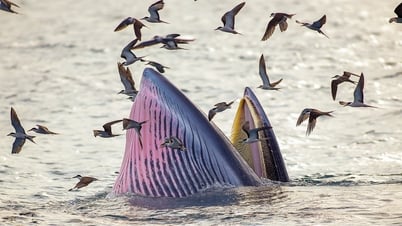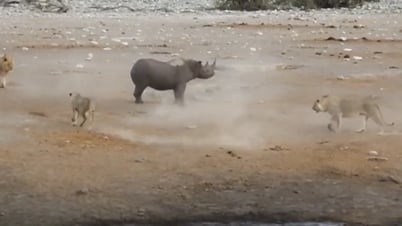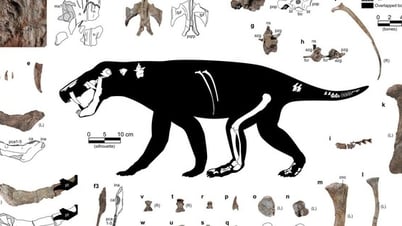Millions of years ago, giant squids like Cameroceras dominated the ancient oceans with shells up to 8 meters high.
Cameroceras hunts under the sea. Video : Netflix
In the Netflix nature documentary Life on Our Planet, filmmakers recreate the hunting of ancient giant squids in unprecedented detail, Newsweek reported on October 24. According to Tom Fletcher, the program's science consultant, ancient cephalopods (a class of marine animals that includes squid and octopus) like Cameroceras and its relatives were cone-shaped monsters that hovered and drifted across the seafloor in search of prey. Cameroceras had a massive shell, much larger than its face-like head, large eyes and long tentacles, and it specialized in scrounging between crevices in rocks to capture prey.
This tentacled giant lived 470 million years ago and went extinct about 30 million years later. “Their more modern descendants, the nautilus, are quite small and harmless. In contrast, the fossils we have of them are such visual fragments that they reveal just how large Cameroceras was,” says Fletcher. Cameroceras fossils have been found in China, Europe, and North America, but showing their soft, tentacled bodies has been difficult. Fletcher and his colleagues had to look for modern or extinct relatives of Cameroceras to reconstruct the missing parts, because soft tissue fossils like tentacles and internal organs from this type of animal are rare.
The team also looked at modern cephalopods like cuttlefish, octopuses, and squid to learn more about how Cameroceras moved and its intelligence. “Cameroceras’ closest living relative is the nautilus, which has remained relatively unchanged for millions of years. That gives us some clues,” Fletcher said. In the video, Cameroceras moves across the seafloor to hunt for prey. It extends its long tentacles through a crevice in the reef and successfully catches what looks like a horse horse.
The show pioneers a system called time-travel filming, which blends visual effects with natural history. Tapster hopes the show will give viewers a new perspective on prehistoric life on Earth, while also highlighting the importance of protecting the creatures that live on the planet today.
An Khang (According to Newsweek )
Source link






![[Photo] Super harvest moon shines brightly on Mid-Autumn Festival night around the world](https://vphoto.vietnam.vn/thumb/1200x675/vietnam/resource/IMAGE/2025/10/07/1759816565798_1759814567021-jpg.webp)

















![[Video] Money appropriation, mental terrorism from fast loan advertisements on social networks](https://vphoto.vietnam.vn/thumb/402x226/vietnam/resource/IMAGE/2025/10/07/1759824972038_green-orange-illustration-modern-e-wallet-facebook-ad-png.webp)

















































































Comment (0)